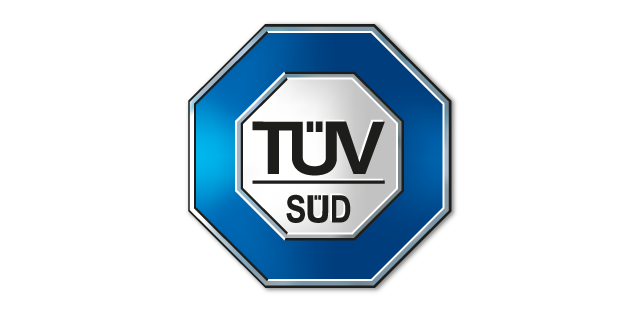
chassis.tech plus 2021 - Video Presentations
Recordings of the virtual event on 29 and 30 June 2021
Cooperation partners

15th International Munich Chassis Symposium | Hybrid Event
4 congresses in one event
04-06-2024 – 05-06-2024 – Munich or virtually via live stream
Holistic chassis systems –
Validating and accelerating the development processes of manual to autonomous driving
The integrated chassis –
Greater interlinking of components, modules, and systems for automated driving
Innovative chassis systems –
Using software tools, driving simulators, virtual tests, and road tests for optimum vehicle dynamics
Smart steering systems –
Meeting the challenges of steering feel, take-over, and steer-by-wire
Modern brake systems –
Mastering brake technology, brake blending, and recuperation as well as environmental aspects in the development process
Reliable tire-wheel components –
Sustainably developing processes and methods for low-emission, lightweight, and energy-efficient products
Dr. Ingo Albers
Dr. Ing. h.c. F. Porsche AG, Germany
Dr. Robert Fuchs
JTEKT Corporation, Japan
Dr. Peter Holdmann
ZF Friedrichshafen AG, Germany
Dr. Thomas Kersten
Volkswagen do Brasil, Brazil
Dr. Cyrille Roget
Manufacture Française des Pneumatiques Michelin, France
Dr. Navid Samadi
Huawei Technologies Duesseldorf GmbH, Germany
Author: Patrick Schäfer
News from the 15th International Munich Chassis Symposium chassis.tech plus 2024, Germany
Chassis Trends from Tires to Steer-by-Wire
What's on the chassis community's mind? At chassis.tech plus 2024, the latest developments in the fields of suspension, steering, brakes and tires/wheels will be discussed.
Active chassis technology for sports cars, sustainable tires, driving dynamics for electric cars and steer-by-wire: The 15th International Munich Chassis Symposium will once again bring the chassis community together in 2024 to exchange experiences. Alexander Heintzel, Editor-in-Chief of the ATZ | MTZ Group, and Prof. Dr. Peter E. Pfeffer from HM Hochschule München University of Applied Sciences will welcome 460 participants from all over the world, 400 of whom will be on site at the Hotel Bayerischer Hof in Munich.
As always, the event, which is also being held virtually, begins with the keynote speeches. Dr. Ingo Albers, VP Drive System at Porsche, will kick things off. He will present the Porsche Active Ride suspension, which is used in the revised Panamera and Taycan models. The air suspension with two-valve technology on each shock absorber improves the balance between driving dynamics and ride comfort. It has an electrically operated hydraulic pump that can be used to actively build up forces in the rebound or compression direction. The dampers operate at up to 13 Hz and keep the vehicle horizontal at all times. Body movements are reduced to a minimum. A Taycan is now also significantly faster on the racetrack thanks to the newly developed suspension. Functions such as the overcompensation of pitching and rolling tendencies or the lifting of the body when getting in and out of the car ensure greater comfort.
Reducing the CO2 Footprint of Tires
Dr. Cyrille Roget from Michelin describes what makes an environmentally friendly tire. With a view to Euro 7 and the advancing electrification, which also involves special tires for heavier electric vehicles, he presents the method chosen by the tire manufacturer for life cycle assessment. It should make it possible to determine the most important levers for effectively reducing a tire footprint, regardless of the drive system. When manufacturing sustainable tires, it is important to find the right mix of recycled materials, efficiency, durability and reduction of particulate emissions. The tire manufacturer's life cycle assessment is based on the EU Commission's proposals. Over 80 % of the environmental impact of tires occurs during the use phase: Roget cites rolling resistance, durability and particle emissions as the most important criteria. In addition to the vulcanization process, which Michelin is converting to an electric system, the extraction of raw materials and the construction of the tire also play a decisive role in the sustainable production of tires.
The second keynote session will begin with Dr. Navid Samadi, Chief Engineer, Intelligent Chassis and Vehicle Performance at Huawei. In his presentation, he will provide an overview of the Chinese tech group's automotive activities. Huawei technology can be found in various Chinese cars, for example in the sporty Luxeed S7 electric sedan, which is manufactured by Chery. The Tesla Model S-sized vehicle combines a chassis with double wishbones, air suspension and semi-active damping with intelligent control. The 2.2 t electric vehicle with 365 kW (496 hp) from two electric motors uses the intelligent torque system "Adaptive Torque System" and "Dynamic Corner Control" in Sport+ mode to improve dynamic cornering behavior. The control system ensures an intelligent distribution of forces through the electric motors at the front and rear, increasing vehicle dynamics as well as vehicle safety thanks to the "Antiskid Mode".
Outlook on Steer-by-Wire
Dr. Robert Fuchs from JTEKT Corporation gives a brief overview of advances in steer-by-wire systems. The trends of automated driving and electrification are helping the development of steer-by-wire and vice versa. According to Fuchs, system reliability can be achieved through redundancy. One aim of steer-by-wire systems is to improve safety and the driving experience by allowing the vehicle to take over steering tasks and share them with the driver. This strengthens confidence in the technical systems and in turn helps to establish automated driving. "Shared control" works with "hands on/off" recognition and also enables the steering wheel to be completely locked and the driver to take over quickly. Concepts for steer-by-wire can also support the trend towards electric cars with fold-away steering wheels, as they offer more space in the interior when stationary during charging, for example.